Mostofa Sarwar Farooki is a filmmaker and producer from Bangladesh. His first international breakthrough took place in 2009 with Third Person Singular Number (Bengali: থার্ড পারসন সিঙ্গুলার নাম্বার ) featuring Nusrat Imrose Tisha in her acting debut. The film premiered at Busan International Film Festival then was presented in Europe at Rotterdam International Film Festival.
Farooki’s following feature film Television was chosen as the Closing Film of Busan International Film Festival in 2012.
“A key exemplar of Bangladeshi new wave cinema movement” according to Variety, festival darling Farooki has just received two prizes at Vesoul International Film Festival of Asian Cinema for his film Saturday Afternoon (Shonibar Bikel), which is banned in Bangladesh.
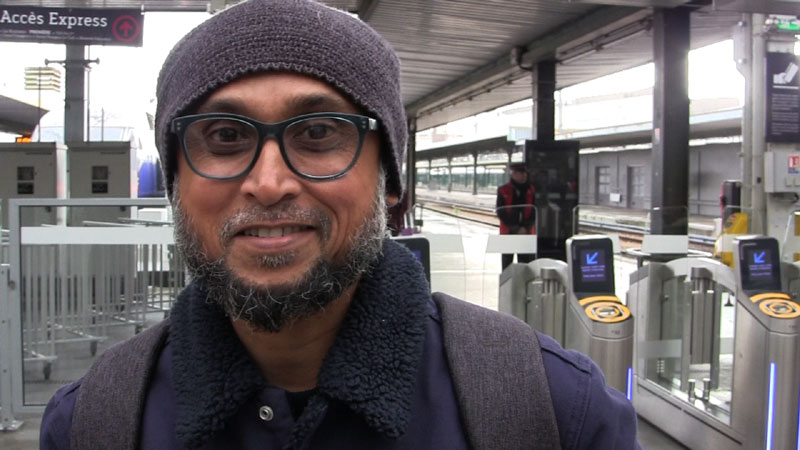
How did you become a filmmaker? What was your journey toward filmmaking?
I really don’t recall when it all started. I was brought up in a typical middle class neighborhood named Nakhalpara in Dhaka. People from this area have a great storytelling tradition. In my childhood, I would see hundreds of amazing storytellers in local tea stalls. They would sit there for hours telling all possible and impossible stories. In those tea stalls, they would mostly create fake stories and used to tell them in most believable ways. Some of them would tell fake stories about their rich relatives, some would tell stories about their greatness and fortune. I used to think why they lie but didn’t have the answer ready. When I grew up, I realized why they lie. They lie because sometimes lies comfort our souls. I think growing up among such amazing storytellers might have just pushed the basic human instinct of storytelling in me.
I faintly remember getting a video camera in my hand when I was in high school. It belonged to some of my relatives, I guess. Bit what I clearly remember is my dress and action. That image is planted in my mind so vividly. I was wearing a white shirt with sleeves up and trying to capture the panoramic view of the road in front of my maternal uncle’s house. At one point, one of my cousin came to see what I am doing. And he started to shoot me. I remember I gave a director-like pose with two of my hands framing something. Now I remember it was a pose which I subconsciously copied from one of Satyajit Ray’s famous photograph at work. I didn’t learn filmmaking from any school or any mentor though. I jumped into the water and learnt swimming. In other words, I consider myself to be a lifelong student of world university of mistakes. I learn from my own mistakes.
Are there a lot of filmmakers in Bangladesh including arthouse filmmakers? Are there film schools in Bangladesh? Where do most filmmakers from Bangladesh learn about cinema and filmmaking?
There is no film school in Bangladesh. People mostly learn the craft and art of it by assisting other directors. In early eighties, there was an independent short film movement in Bangladesh. It gave birth to films like The Wheel by Morshedul Islam (Chaka), which has been included in Apichatpong Weerasethakul’s favorite 50 films by the way. This movement gave birth filmmaker like Tareque Masud whose 2002 film Clay Bird was in Directors’ Fortnight. Although this movement didn’t go any further but it influenced a newer generation of filmmakers who capitalized on the evolution of digital medium and mushrooming of satellite television in Bangladesh. I actually belong to that generation. We started making short films or fiction films for television channels. Although we worked for TV, our basic intention was to practice the cinematic style of our own. It resulted into a paradigm shift in audience’s taste and filmmakers’ visual style. In the meantime, some of our films went to international festivals like Toronto and Rotterdam. But ever since Busan selected Television as their closing film in 2012, Bangladeshi cinema constantly saw an uptick. Lot of younger filmmakers are now coming out with fresh ideas, dreams, and hope.
Although there is no proper ecosystem to support local talents, I believe our cinema will be able to make a mark in the coming years thanks to the undying spirit of our younger filmmakers.
How do independent Bangladeshi filmmakers finance their films? Are there producers?
Well, financing is big problem. We have a very few financiers who finance in independent films. Government has a funding system which is probably for some special kind of films or people. The way you know the term « producer » is very different than how Bangladeshi industry knows. In Bangladesh, people who finance a film are called producers. And directors mostly work as uncredited producers in those films. So it’s a kind of mess.
To give you an idea of the average budget of my films, the production budget of Television was about 300,000 USD. And the production budget of Saturday Afternoon, which was presented in Busan film festival last year and just received two prizes at Vesoul International Film Festival of Asian Cinema, was 400,000 USD.
How many independent/arthouse films (like yours) are produced every year? How many are released in Bangladesh?
At one point, it was three to four a year. Now it’s down to one or two.
From a global point of view (including commercial films), Bangladesh used to produce about 52 films a year. Now it has come down to 20 films.
Have your movies been released in Bangladesh? If so, how did the audience react?
Yes, all my films have been released in Bangladesh and it mostly enjoyed some kind of following by young audience. However censorship has always been an issue for me. I made seven films so far. Out of seven, five films suffered at the hand of censor board. I now feel it has started making me tired. I hope it doesn’t cripple my spontaneous thought process. But it is really annoying!
In January 2019, the Bangladesh Film Censor Board banned the theatrical release of my latest film, Saturday Afternoon. That decision is actually a mystery to me! After the screening of the film at the censor board, they called me to let me know they appreciated the film. Some of them even gave interviews in the local press, praised the film and mentioned the film would be issued a certificate soon. Two days later, I started to see an online campaign by some Islamic preachers that demanded the film be banned. In 24 hours, those preaching videos were shared thousands of times. They said all false things against the film without even watching the film. Two days later, the censor board called for an unprecedented second screening of the film. After the second screening, they decided not to issue a certificate. We have appealed against the decision, which is still pending.
How would you define Bangladeshi cinema? Is there a specific cultural identity? A specific history/evolution?
Bangladeshi cinema has typically been a copycat of Indian mainstream or Kolkata art house (the Satyajit Ray, Ritwick Ghatak, Mrinal Sen way). There have few exceptions but that’s the general picture. When we started to make films, we defied to follow this. We decided to follow our own hearts. We picked stories from our daily lives. We discarded the traditional stylized acting. We got rid of bookish and fake dialogues. It helped us connect with a big young population but it also angered the establishment. So lot of debate started to surface regarding our use of dialogue, Bengali accent, choice of subjects. However the beautiful part is Bangladeshi cinema has started to be personal. Our films started to reflect our personalities. I think, if we can continue like this and can keep making more films, we will see some kind of collective identity of Bangladeshi cinema.
How would you define your own cinematographic style, your vision or point of view as an auteur?
Well, I want rest it upon the audience and critics. However if I have no other option but to tell something about my cinematic vision or style, I would say I am probably an explorer, an experimenter. I want to experience things in their most uninhibited forms and want my audience to experience my work of art like an explorer. I want my cast to act true and be completely unaware of the audience’s presence.
During the shooting of Saturday Afternoon, most of the cast actually started to live in the zone psychologically. So at one point, they didn’t have to act as they started to respond from their instinct. Among them, the old gentleman, who played the role of Mr. Mojammel Huq, he really got unwell because of the trauma. Once our shooting was over, he was admitted into PG hospital as his blood pressure shot was so high!
You founded Chabial movement, which is considered a Bangladeshi avant-garde cinema movement. Can you tell us more about that?
Chabial is basically my production company. The productions that we made might have influenced a paradigm shift in traditional Bangladeshi visual storytelling to a more personal kind of filmmaking with the use of humor, fantasy, absurdity and emotion. I don’t know whether people hint to this influence when they talk about Chabial. Also I have helped a good number young filmmakers learn the craft of storytelling through on job training. This infused a lot of energy and fresh blood into the industry. Maybe people mean this when they talk about Chabial.
What was the last film you saw in cinema that you really liked?
I know it may sound too mainstream after four historic Oscar wins, for which I am obviously happy, it’s PARASITE! Even if it’s probably not Bong’s best film, the great thing about this film is the sheer smoothness and easy confidence of the director. If the same script were made by another director, there would have been every risk of being too cheesy, too obvious and wishful! Bong Joon-ho’s masterful direction made it a smooth and believable film.
Interview by Françoise Duru

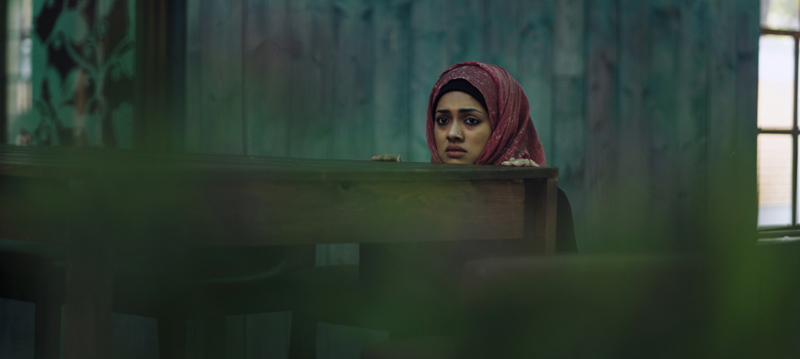
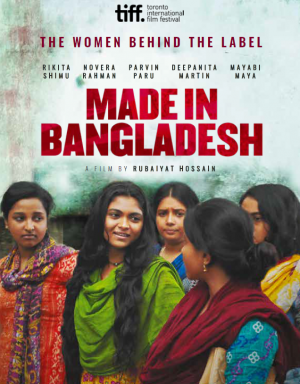
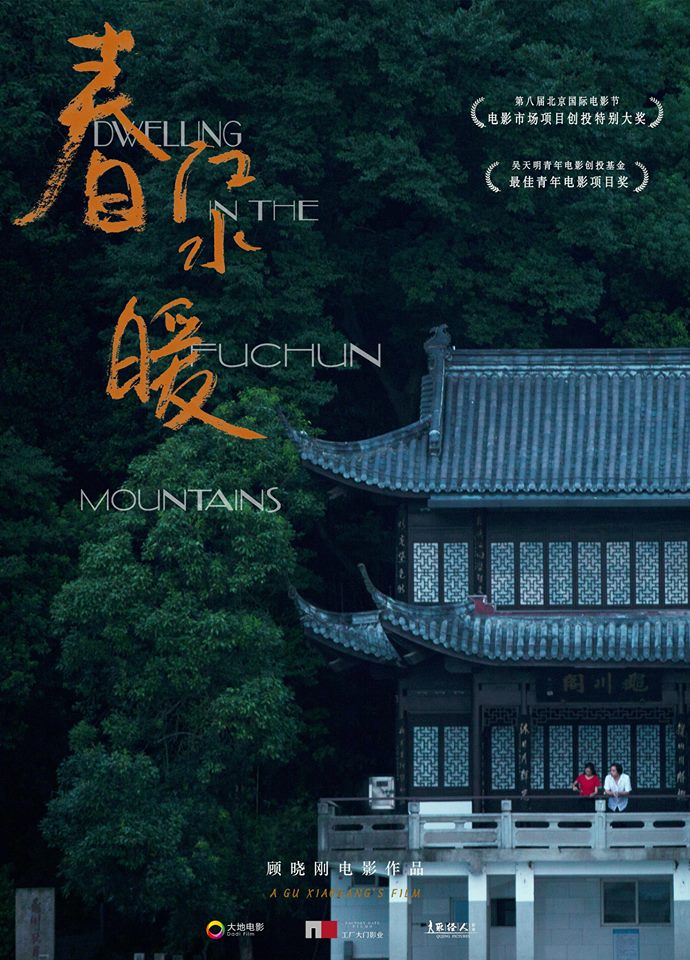
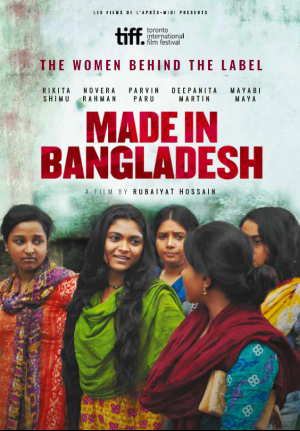
স্যার আমার ছোট্ট থেকে ইচ্ছা ছিলো
যে আমার দেশে আমি মুভি তে আমি কাজ করবো
কিন্তু কখন সেই সুজুগ টা পাই নি স্যার।
আমার ভিতরেও প্রতিভা আছে স্যার
একটু আমার কথা টা যদি আপনি একবার ভেবে
আমাকে আপনার কাছে দেকে নিতেন খুব
বেশি স্যার আমার জন্যে ভালো হতো
আমার সপ্ন টা অন্তত পুরণ হতো 🙂